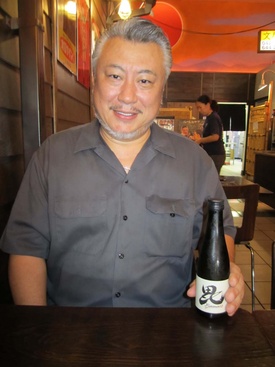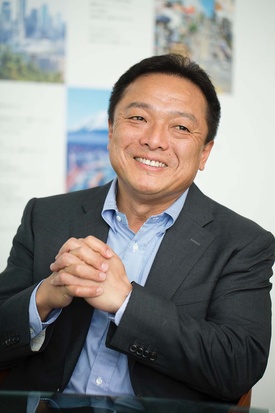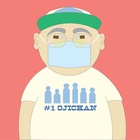"There's no option to quit"
As I write this article in mid-April 2020, Los Angeles is in the midst of the coronavirus pandemic. The Governor of California has announced an extension of the stay-at-home order, and the stay-at-home order will continue until May 15th. Of course, there is no guarantee that the stay-at-home order will be lifted. Dr. Anthony Fauci, a member of the Trump Administration's coronavirus task force, has sounded a warning about President Trump's haste to reopen businesses as soon as possible.
My work as a freelance writer has also been affected. I often travel to cover events held in the Japanese community, but 10 events scheduled for March and April have been canceled. A Japanese magazine planned a travel article on tourist spots in California, and there was a possibility that the article would be published at the end of April, but it was canceled. Not only can our reporting team not travel far, but even if we publish an article on tourist spots in the United States, it is meaningless because people cannot travel there from Japan.
Eating out to refresh yourself is not an option. Restaurants are only allowed to do takeout and delivery. It's a crisis for the industry. In this situation, I had the opportunity to speak with Takaaki Koyama, owner of Bishamon Group, which operates 12 stores in the Los Angeles area, including Japanese restaurants, ramen shops, and karaoke bars. "All stores except the karaoke bar have switched to takeout and delivery and are continuing to operate. Sales at Bento-ya, which originally only sold bento boxes, have not changed compared to pre-COVID times, but sales at other stores have fallen to about 20-30%."
Koyama opened his first restaurant in Covina, a suburb of Los Angeles, in 1993. "Business-wise, it's the toughest it's been in 27 years. Some restaurants around us are starting to give up on continuing. I think the ultimate choice is to close now, or to continue until the time comes (when we have no choice but to give up on business). But I believe in doing what I can, to the best of my ability. Quitting is not an option for me."
Among Koyama's restaurants, Daikokuya, a ramen shop where customers always line up, is particularly famous. Regular customers who come to the Little Tokyo store of Daikokuya for takeout say that they are grateful that the store is open. "No matter how difficult it is, I can't close the store for the sake of customers who say that," says Koyama.
With many stores closed, the group's stores are mainly promoting the fact that they are "open" on social media. As a special measure, alcoholic beverages have now been sold at each store. They have also started selling sets of fresh noodles and soup base so that customers can recreate the taste of Daikokuya at home. Koyama says that he has no choice but to do everything he can and keep running, as he is concerned that if he closes the store, he may never be able to reopen. We asked him how the business will change once this pandemic is over. "We need to continue to expand takeout and delivery, and we also need to take the hygiene of the stores, which we have been careful about until now, to the next level. Since customers are becoming more sensitive, for example, we need to think of different ways to think about menus rather than reusing the same ones."
Finally, Kabutoyama said, "Currently, social distancing is translated into Japanese as shakai tang (social distance), but that is merely physical distancing, and I believe that people who have experienced this coronavirus pandemic should cooperate with each other more than ever before and deepen the distance between their hearts."
"Adapting to change and finding new opportunities"
Next, I was told about the situation by Yoichi Komiyama, the owner of Takuyo Corporation, the publisher of the Japanese information magazine Lighthouse, where I myself worked until 17 years ago. The company publishes information magazines all over the United States, but its headquarters are in the South Bay area near Los Angeles. The company also operates a program to accept short-term trainees from Japanese educational institutions in the United States, and a business that promotes Japanese universities and elderly care facilities in the United States and actually holds seminars. Komiyama says that the coronavirus has had a major impact on programs that accept short-term trainees from Japan. "Many Japanese universities and vocational schools have decided not to hold overseas training programs this year. In other words, this year the programs themselves have had to be suspended." Information sessions for people aiming to take the Japanese university entrance exam from the United States have also been switched to online. They are planning to hold them in person in the fall, but it is still unclear when this will happen.
When asked about his outlook for the future, Komiya replied, "Like influenza, viruses never go away. In other words, it is important to shift to a business environment that assumes that there will be some impact in the future. We will continue to promote onlineization. Also, in a situation where clients are suspending advertising in information magazines, we are prepared to protect the jobs of our employees even if sales fall. One way we are doing this is through multitasking. For example, if designers are not only involved in design but also in customer interactions, sales can devote their efforts to new business development. Members of other departments may be shifted to sales. We also need to liven up the market itself. Right now, we are regularly posting information about restaurants that offer takeout, without charging advertising fees."
He continued, "This may be misunderstood, but," he added, "In a crisis like this, many consumers are becoming more strict about purchases, so those providing products and services must also increase their appeal in order to be chosen. In other words, it is important to evolve from being a "nice to have" to being an indispensable presence. Lighthouse cannot survive unless we carefully select the information that readers really want and gain their support. If we do not turn a blind eye to the problems, keep our eyes on all possibilities, rack our brains around the clock, and adapt to change, we will surely find a way out. Looking at it from another perspective, this is a chance for the entire company to come together and create new products (services) and new markets." Komiya emphasized that now is the time for companies to "shed their skin."
Additionally, the Okinawa Prefectural Association of North America, which celebrated its 110th anniversary in 2019, had planned to invite Japanese musician Begin to perform in the Los Angeles area on March 28, but this was of course postponed. For restaurants, media, prefectural associations, and even freelancers like me to look back on 2020 as a difficult year in the past tense, the only way to overcome the current situation is to imagine what activities we will be doing after the coronavirus subsides.
© 2020 Keiko Fukuda








